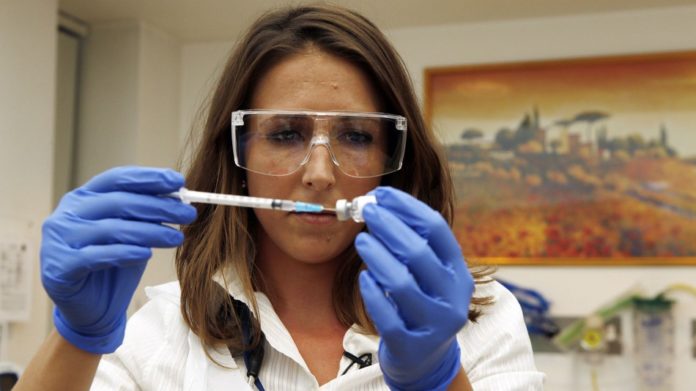Canada’s Experimental Ebola Vaccine to Begin Clinical Trials Overseas

Canadian officials will ship an experimental Ebola vaccine to the World Health Organization in Geneva, Switzerland, on Monday to start clinical trials in humans, the country’s government announced Saturday.
The WHO has lined up 250 people in Kenya, Gabon, Germany and Switzerland who will receive a dose of the vaccine from the 800 vials that Canada plans to send, according to the Canadian Broadcasting Corporation.
Clinical trials are planned for late October or early November, and the WHO hopes to have determined the vaccine’s effects by early December. If the vaccine is effective in stopping Ebola, and does not cause any severe side effects, the plan is to continue with clinical trials in Guinea, Liberia and Sierra Leone, the three West African nations most affected by Ebola in 2014.
The vaccine, known as VSV-EBOV, was developed by scientists with the Public Health Agency of Canada, and has shown “very promising results in animal research,” according to a statement on the government’s website. Canadian Health Minister Rona Ambrose announced on in August that the government would donate the vaccine to the WHO, and both parties have since been negotiating the legal terms of the deal.
Pls’d to announce Cdn will donate 800-1000 doses of the experimental vaccine & provide additional funding to the @WHO 2/2
— Rona Ambrose (@MinRonaAmbrose) August 12, 2014
“This vaccine … could be an important tool in curbing the outbreak,” Gregory Taylor, Canada’s chief public health officer, said in a statement. “We will continue to work closely with the WHO to address some of the ethical and logistical issues around using this experimental vaccine in the fight against Ebola.”
The vaccine will be sent by air in three different shipments, in case a delivery goes awry. The WHO will store the vials in a refrigerator at minus 80 degrees Celsius (minus 112 degrees Fahrenheit).
VSV-EBOV is one of two experimental Ebola vaccines in position to begin clinical trials (the other is the collaborative result of British and American organizations). Both were discussed at a late September meeting of health professionals that was convened by the WHO. The vaccines are far from proven, and the companies producing them were not ready for a huge demand, but production of both vaccines is set to scale up significantly by early next year.
That said, health professionals disagree on how to administer an Ebola vaccine. Doling it out during an outbreak would be logistically difficult, and it would be hard to determine the vaccine’s efficacy on-the-go.
Have something to add to this story? Share it in the comments.
